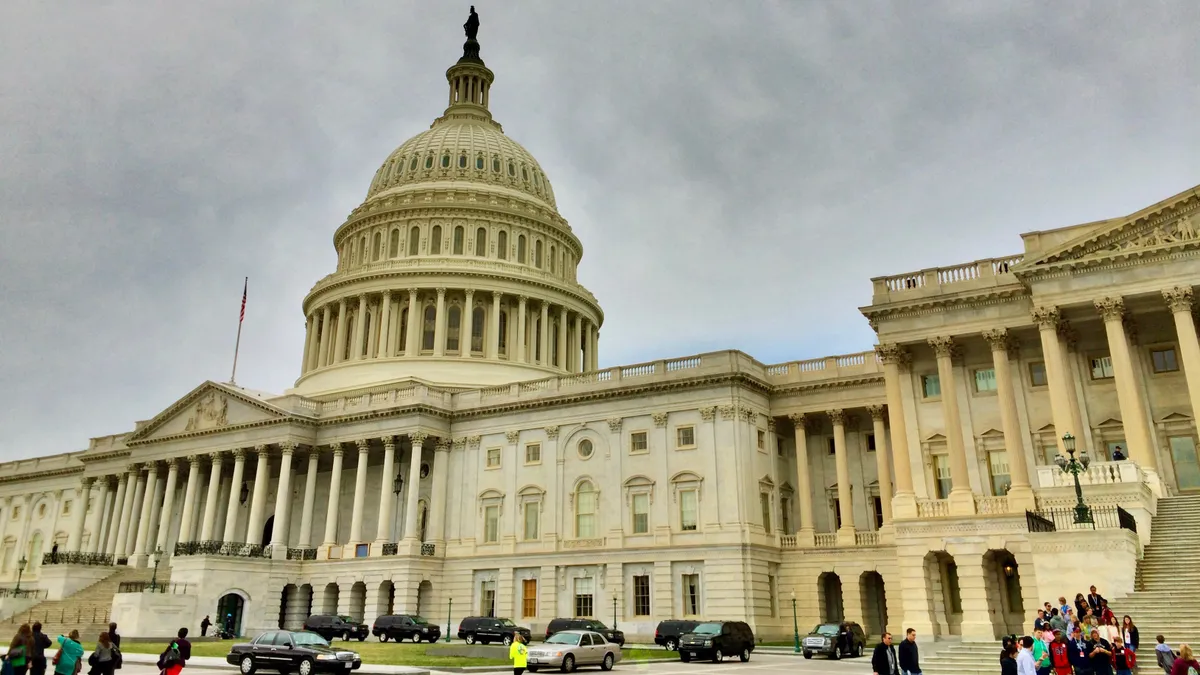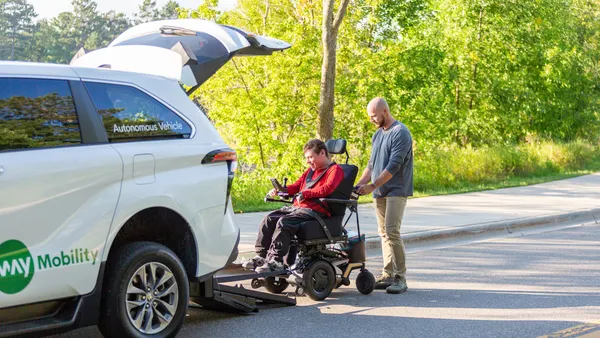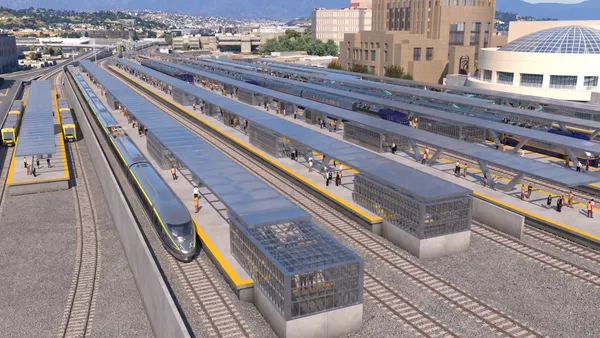Dive Brief:
- The federal government must provide more financial aid to help cities avoid economic ruin, Washington, DC Mayor Muriel Bowser and San Francisco Mayor London Breed said during a Washington Post Live event Thursday.
- San Francisco could face a budget shortfall of between $1.1 billion and $1.7 billion, Breed said. Meanwhile, Bowser said the $498 million that Washington, DC was allocated through the Coronavirus Aid, Relief, and Economic Security (CARES) Act is not enough, as other states received minimums of $1.25 billion in aid — despite some having a smaller population than DC.
- Given encouraging signs that the rate of infection is starting to slow, and apparent "social distancing fatigue" among residents, both mayors said they are looking to cautiously reopen their economies but cannot let up yet. "We want to get back to business too, and part of that is being able to keep our cases down," Bowser said.
Dive Insight:
Early in the coronavirus pandemic, there were warnings that cities' economic recovery would be a "long road" and local leaders should not let up on social distancing policies designed to support residents’ public health. Bowser and Breed's statements put into stark context the financial costs of coronavirus and mitigation strategies, highlighting complications to economic recovery outside of direct health concerns.
"I don’t think that it's a lot to ask to get these resources directly in the hands of the people right now who need it the most and to work with cities on our economic recovery in the long-term," Breed said.
Their call for more federal dollars came on the day Congress passed a $484 billion relief package, which includes $321 billion for small business aid through the new Paycheck Protection Program. State and local government relief will likely be among future measures that Congress debates, NPR reports.
Like many of their peers in U.S. cities and states, Breed and Bowser both have appointed task forces dedicated to evaluating when certain businesses can reopen and under what conditions. Bowser signaled an openness to in-person summer school camps and other recreational opportunities, if appropriate.
"It's going to change, life as we know it, but we’re hoping that we're able to allow people to get back to things they want to do," Breed said. "But more importantly, we need to open up our economy in a responsible way so that we don’t see a significant surge that we’re definitely not prepared for."
Breed and Bowser said even if economies were to reopen soon, recovery will take time in their cities, especially for businesses where large gatherings are common like restaurants, entertainment and sports venues. Bowser said extra federal money would help the city be "made whole."
Breed said it is important to be safe, but also to get people back to work soon as millions have filed for unemployment.
"It's not just about access to services, it's about the livelihoods of the people in these industries," Breed said. "But we also have to be careful about not jumping the gun."
To keep up with all of our coverage on how the new coronavirus is impacting U.S. cities, visit our daily tracker.












